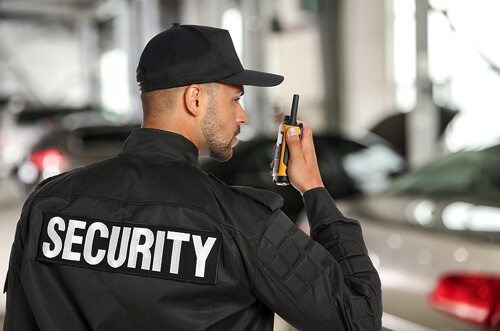The Role of Security Guards in Airport Security
Safeguarding Modern Airports
Airports are complex hubs where passengers, cargo, and airline staff converge. The role of security guards in maintaining peace and order at these facilities is indispensable. They provide a visible deterrent against threats while reassuring travelers that safety is a top priority. Their daily duties involve both preventative measures and active responses to unfolding incidents. Unlike machines that operate only on programming, human guards bring intuition and adaptability, which makes them irreplaceable in aviation security.
First Line of Defense
Security guards are the first people travelers encounter when entering airports. By monitoring entrances, inspecting suspicious behavior, and verifying credentials, they prevent many issues before they escalate. This visible presence discourages criminal activities such as theft or unauthorized access. A guard’s quick assessment skills can make the difference between a routine day and a crisis. Their ability to detect early warning signs helps protect thousands of passengers who rely on airports daily.
Screening and Patrol Duties
Although advanced scanners and machines are vital, human supervision ensures nothing is overlooked. Security guards supervise luggage screenings, identify potential loopholes, and maintain oversight of sensitive checkpoints. Patrol duties extend across large areas such as parking lots, lounges, and boarding gates. Their active presence not only enforces regulations but also offers passengers someone approachable for guidance, which enhances both safety and convenience.
Ensuring Access Control
Restricted areas such as control towers, maintenance hangars, and baggage zones require tight monitoring. Guards stationed at these points verify passes, confirm staff identities, and prevent trespassing. Their role is not limited to checking credentials but also includes quick intervention if unauthorized entry is attempted. Access control prevents significant security breaches that could jeopardize operations or passenger lives. With round-the-clock vigilance, guards ensure only authorized personnel move freely in critical areas.
Managing Emergencies Effectively
Crisis situations in airports demand immediate and organized responses. From unattended luggage to fire hazards, guards are trained to act with precision. They guide evacuation processes, assist medical teams, and keep passengers calm during chaotic events. Because airports often host international travelers, guards use communication and discipline to prevent panic across language and cultural barriers. Their decisive action in emergencies demonstrates why airports cannot function without professional security teams.
Supporting Travelers
Security guards are not just protectors; they also act as guides. Many passengers approach them for directions, terminal information, or lost property inquiries. Their assistance goes beyond safety, shaping a positive customer experience. A helpful interaction with a guard can reduce travel stress, particularly for elderly passengers or those unfamiliar with airport processes. Balancing authority with approachability makes guards both respected and relied upon.
Combating Criminal Activity
Airports attract risks such as smuggling, theft, and even organized criminal activity. Guards are trained to identify suspicious movements, monitor high-risk zones, and collaborate with intelligence agencies. While police handle arrests and investigations, guards serve as the on-the-ground eyes and ears that notice irregular behavior first. Their proactive presence significantly reduces crime within airports, strengthening trust among passengers and airlines.
Working with Other Agencies
Airports function through cooperation between multiple authorities. Security guards support aviation security units, customs officials, and local law enforcement. They supply vital information collected during patrols, surveillance, and passenger interactions. This seamless collaboration ensures a comprehensive security system where no aspect is overlooked. Guards act as both protectors and communicators, making the overall system more efficient.
Protecting Infrastructure and Assets
Airports represent massive investments in technology, aircraft, and facilities. Protecting these assets is a critical responsibility of security personnel. Guards prevent vandalism, secure cargo areas, and oversee ground equipment. Businesses requiring such expertise often turn to professional security guard services that provide skilled teams trained for high-risk environments like airports. Their reliability ensures that valuable assets remain safe around the clock.
Static Guard Presence
Some airport areas require constant attention rather than mobile patrols. That is why static guards play an essential role. Whether positioned at gates, baggage conveyors, or ticket counters, they maintain consistent surveillance. Specialized providers such as static security guards supply personnel with discipline and alertness for these fixed posts. Their continuous presence strengthens airport safety by deterring intrusions and ensuring immediate responses when needed.
Preventing Terrorist Threats
Unfortunately, airports are potential targets for terrorism. Security guards act as deterrents by closely monitoring crowd behavior, coordinating with counter-terrorism units, and swiftly reporting unusual activities. While technology detects explosives or weapons, guards provide the human element of suspicion recognition that machines cannot replicate. Their presence assures passengers that safety is always the highest priority in global travel.
Conclusion
From guiding travelers to preventing terrorism, airport security guards are essential for smooth operations. They provide a blend of safety, professionalism, and customer service that no machine can fully replace. As air travel continues to expand, their role will only grow in importance. With training, discipline, and dedication, guards protect not just airports but also the confidence of millions who rely on safe journeys every day.
FAQs
Q1: What is the main responsibility of airport security guards?
Their primary duty is to ensure passenger safety, monitor facilities, and prevent security breaches.
Q2: How do guards support technology in airports?
They supervise scanning systems, review CCTV footage, and provide human judgment where machines fall short.
Q3: Are security guards trained for emergencies?
Yes, they learn evacuation procedures, crisis handling, and first aid to manage unpredictable events.
Q4: Why are static guards important in airports?
They provide constant surveillance at fixed points, ensuring uninterrupted security in sensitive areas.
Q5: Do airport security guards also assist passengers?
Absolutely, many guards help with directions, queries, and support, improving overall passenger experience.



